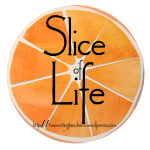Slice of Life: Mentor Texts Are the Perfect Scaffold #SOL19 #TWTBlog
Mentor texts are the perfect scaffold for young writers. Mentor texts are always available. They do not care how often they are used for support. They don’t over-scaffold or rescue. They are great with wait-time. They are open-ended and allow the writer to use craft moves purposefully in his/her own writing. Research demonstrates that it takes 10,000 hours to become deliberate in any field – that’s a lot of hours. Mentor texts provide choice, allow students to have agency, and create space for students to practice again and again.
The sooner we start inviting our writers to use mentor texts the sooner they will start reading like a writer. There are no limits to how we can use mentor texts to support our young writers. I worry that too often we only use mentor texts to study a particular author/genre or we tell kids which craft move to try. I have been trying to open up the possibilities of using mentor texts by always making it an option for students when they are writing. Once we show them how to use a mentor text, I want student to be in control of when and how they use them.
Last week I was working with some first graders. They were writing nonfiction and as we studied their writing, we noticed it was a bit dry in comparison to their narrative writing. We decided to focus on the table of contents and think about how authors “get their readers to not want to stop reading” through their table of contents. We sent partnerships off to immerse in table of contents. We gave the post-it notes to mark chapters they liked and to note why they liked them. Here are a few examples:
Students then came together and shared what they found. I quickly posted the options and invited kids to revise one of their chapters using one of the craft moves. It was amazing how quickly they set off and revised with intention. Some continued to study other table of contents, others talk with their partner about which book they should revise, and others had a clear vision of what they wanted to do. This is the authentic work of a writer.
The process of revision should be active, playful, and meaningful. We need to get out of our students’ way and let them give it go. They more they try things out and look to authors - professional, teacher, and student authors - as mentors, the more they will embrace and find joy in the revision process. They will anticipate writing as they are reading, and they will consider their reader as they are writing.
How do you use mentor texts in your classroom? I would love to hear about it!
And … congratulations to Mandy Robek! You have won a copy of The 39 Stops to Making Schools Better. Please email me your contact information so I can send it to you! Clare.landrigan@gmail.com
Clare
Thank you, Betsy, Beth, Deb, Kathleen, Kelsey, Lanny, Melanie, and Stacey for this weekly forum from Two Writing Teachers. Check out the writers, readers, and teachers here.








